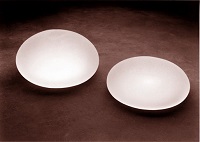
The FDA first mentioned a possible link between rough-textured breast implants and a particular type of lymphoma in 2011. The warning was more of a glancing blow than anything and failed to raise any significant alarms – after all, the risk of breast implant-associated anaplastic large-cell lymphoma was purported to be less than one in 500,000. As one implant manufacturer chided, “A woman is more likely to be struck by lightning that get this condition.”
As it turns out, that risk could be closer to one in 2,200. And while that’s still not exactly a high risk per se, it is a significant narrowing of the odds. And the medical community says that the implants just aren’t worth it.
Breast implants generally come in two varieties: textured and non-textured. Used primarily in non-US markets, textured implants were developed as a better way of ensuring the implant stayed in place after surgery. However, that texturing could lead to tissue damage that, over time, could cause the patient to develop a specific type of cancer generally known as ALCL.
Some plastic surgeons are calling for the complete removal of textured implants as an option. “No one can prove any benefits to texturing,” says Dr. David Hidalgo in a story posted to Philly.com. Dr. Hidalgo is a plastic surgeon in New York City and a professor at Weill Cornell Medical College. “If you remove the products, the risk goes to zero. To me, it’s a no-brainer. Personally, I think they shouldn’t be on the market.”
The indication of an enhanced risk was deduced by Dr. Mark Clemens who is a plastic surgeon at the MD Anderson Cancer Center in Texas. The center has emerged at the forefront of research and treatment of implant-associated lymphoma. “We’re still trying to understand if there is a differential risk with the type of texturing and length of exposure,” he says. As it stands now, the risk appears to jump to one in 2,200 after the implant has been in place for about a decade.
Women who have undergone breast augmentation surgery should speak with their doctors to find out what kind of implant was used and how familiar they are with ALCL. They should also be aware of a particular type of screening known as a CD30 test. According to Dr. Clemens, it is possible to miss the presence of ALCL without doing a CD30 test.
